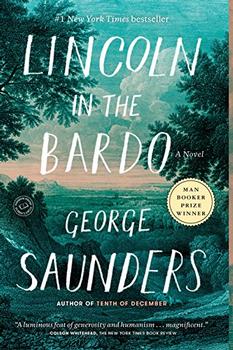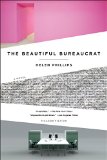Summary | Excerpt | Reviews | Beyond the book | Read-Alikes | Genres & Themes | Author Bio

Who would think dying would be so much fun! Ofir Touché Gafla shows us how the touching, hilarious, and poignant human comedy continues on the other side - but a comedy finally faced with open eyes; one that reveals, as a mirror, the truth of our own lives here and now. Gafla's deep laughter is always tempered by compassion. His satirical, sometimes farcical depictions of the joys and hazards of life and of death often bring us closer to tears than a smile. Removing the veils, we see that each of our lives involves love and resentment, commitment and straying, true understanding of each other and the realization that none of us can probe anyone else's deepest heart. These paradoxes are not resolved in The World of the End but only intensified until we come to understand, and then accept, that such is human reality.
At the beginning of the novel, we meet Ben Mendelssohn longing for his lover and wife Marian, who has died in a way both tragic and darkly funny. He is so desperate that he decides to join her on the other side via a gunshot to the head, and he expects her to meet him when he arrives. Instead, he finds himself on a labyrinthine journey through fantastical places and even through past centuries in search of the one he thought to be the center and fulcrum of his whole existence. In life, Ben had been a "righter," one who writes exciting endings to stories, film scripts, and plays whose authors cannot find a way to bring them to satisfying conclusion. In Gafla's ironic telling, Ben cannot find the right ending for his own story. Perhaps each of us dreams of a right way our story should end, all the while knowing that the end is not in our hands at all.
The World of the End is difficult to classify. Gafla is not predicting what the future might be or the consequences of our present paths, so this is not science fiction or foretelling. He is writing what I'd prefer to call mythic fantasy, which I'll explain more explicitly in Beyond the Book. Gafla gives a frame within which we gain insight into our own lives and the truths, as well as the illusions, which permeate each of them.
Within every step of the story's journey, I found myself saying "Oh, yes" whenever an intriguing new character entered the scene, revealing a different facet to the many-sided adventure. Sometimes we're not even sure whether that facet is part of the same stone, and such is the unsettling complexity which keeps us reading to finally see the whole gem, but even then, we wonder whether we're seeing the true picture or whether we need to pass through another illusion, which may hide another mystery behind it.
There are Vina and Yonatan, computer avatars of two Salmon Rushdie fans whose relationship goes far beyond the literary - and whose real identities astonished yet satisfied me. Mad Hop appears, the Other World's "greatest detective," who Ben engages to help his search; Mad Hop is as eccentric as his name, sometimes reminding me of another Mad character from Lewis Carroll whose bungling, frustration, and even wisdom add to the magic circus. We also meet an insane Belgian lecher, Marilyn Monroe in the 'MM' labeled apartment Ben mistakes for his wife's, and Halfabillion and his confreres Billion and Quarterbillion who care for the forest of family trees. Dorothy in Oz says, "My goodness, people come and go so quickly here" - in the Other World, an endless parade comes and goes from Gafla's imagination adding glints of color to the picture.
We are used to novels that present a "slice of life," but, in this kaleidoscopic romp, we have a "slice of death" with an impish grin. Another wonderful irony Gafa offers us is that Ben, the righter, searching for the perfect ending for his own story, seems to have it fading ever farther away at every turn. Does it finally "come out right"? Only Ben and the reader can judge that.
I'm not sure how Ofir Gafla's Israeli heritage bears on the story, but at times I felt in the presence of great Jewish American comedians like Sid Caesar, Eddie Cantor, Mel Brooks, and Jon Stewart who help us see the laughter of the cosmos in even the darkest moments of life. And so, Ofir, thank you for the gift of this tale and, for your achievement, touché, Ofir, touché. …
![]() This review was originally published in The BookBrowse Review in August 2013, and has been updated for the
July 2014 edition.
Click here to go to this issue.
This review was originally published in The BookBrowse Review in August 2013, and has been updated for the
July 2014 edition.
Click here to go to this issue.

If you liked The World of the End, try these:

by George Saunders
Published 2018
In his long-awaited first novel, American master George Saunders delivers his most original, transcendent, and moving work yet.

by Helen Phillips
Published 2016
A young wife's new job in an enigmatic organization pits her against the unfeeling machinations of the universe in this inventive and compulsively page-turning first novel




The dirtiest book of all is the expurgated book
Click Here to find out who said this, as well as discovering other famous literary quotes!
Your guide toexceptional books
BookBrowse seeks out and recommends the best in contemporary fiction and nonfiction—books that not only engage and entertain but also deepen our understanding of ourselves and the world around us.